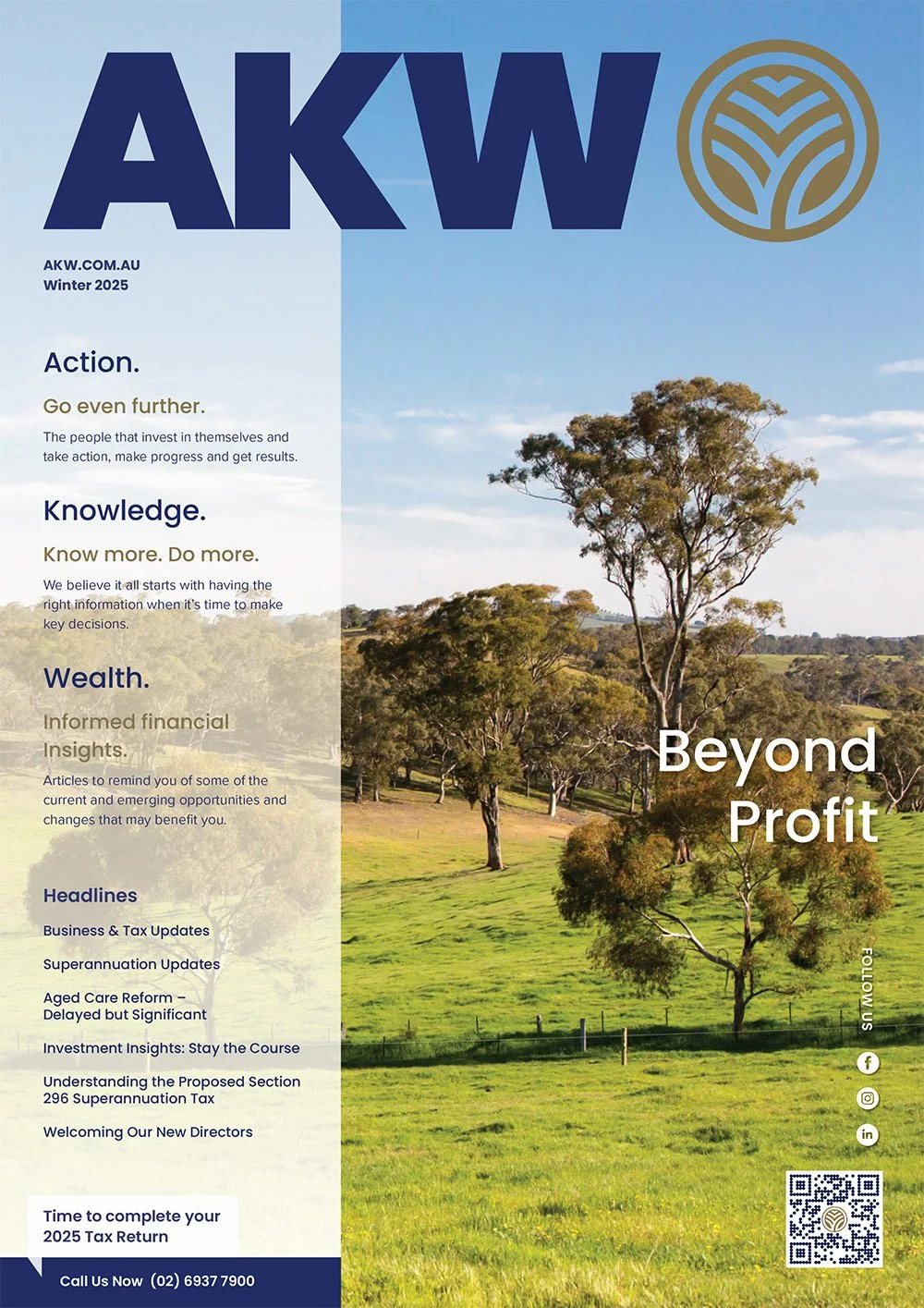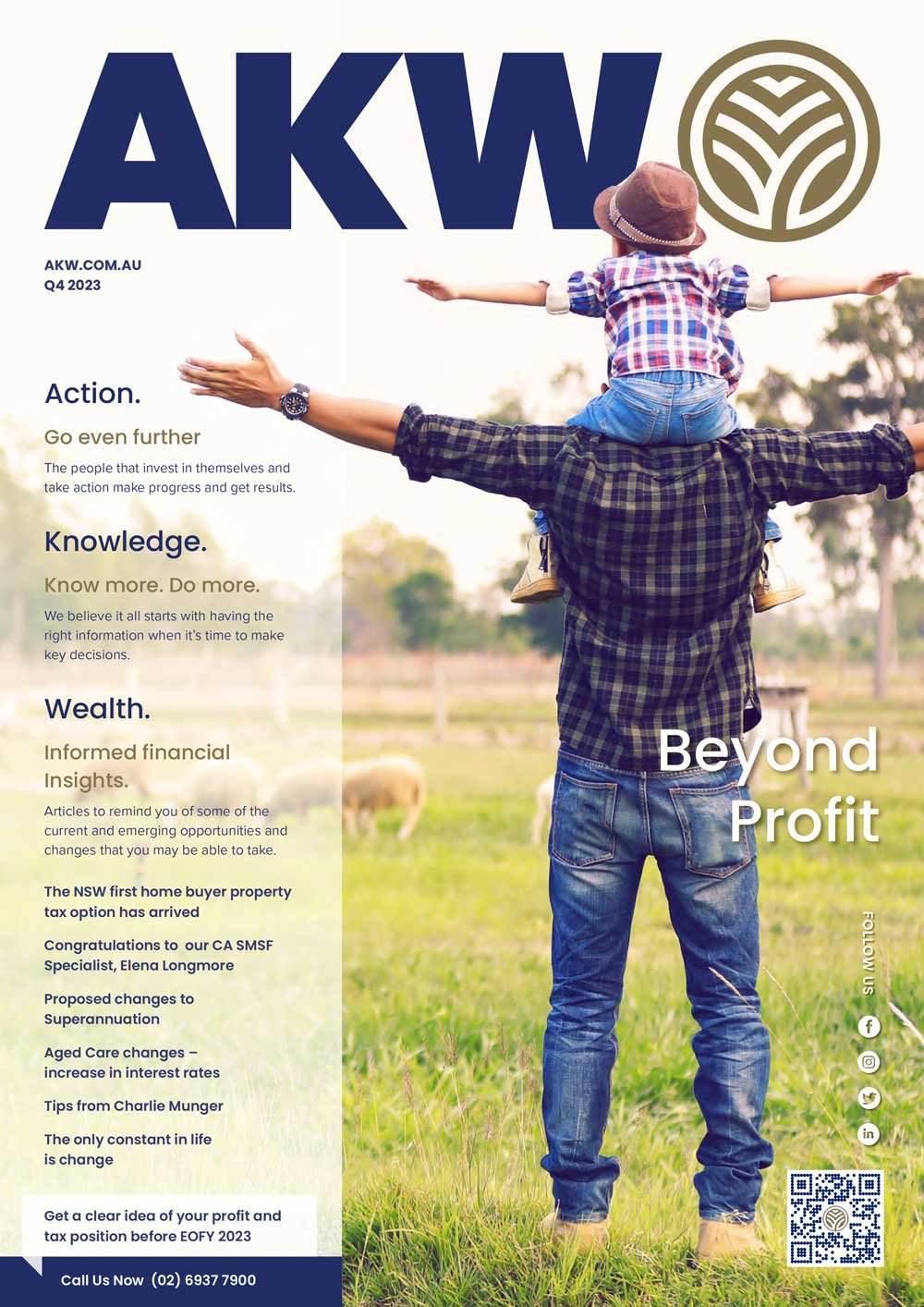Key Superannuation Changes 2023-24
Questions?
Last update July 2023
The new Financial Year brings in a number of changes to Superannuation. A brief summary of the major elements are detailed below.
Employer Super Guarantee Contributions
From 1st of July 2023, employer contributions increased from 10.5% to 11%.
Government co-contribution
The higher income threshold has been increased to $58,445.
People that earn less than the threshold above and make a non-concessional contribution to Super of $1,000, may be eligible for a Government co-contribution up to $500.
Account based pensions/Retirement Income Streams
Minimum Pension Payments
The Government’s temporary 50% reduction to minimum pension payments has ended. From the 1st of July 2023, people with pension accounts will need to receive the following percentage of their balance as pension payments within the financial year.
Age (as at 1st of July 2023) / Minimum Pension Payment
Under 65 / 4.0%
65–74 / 5.0%
75–79 / 6.0%
80–84 / 7.0%
85–89 / 9.0%
90–94 / 11.0%
Over 95 / 14.0%
Pension Account Commencement Limits
The maximum amount of Super benefits that can be used to commence an account based pension (Transfer Balance Cap) has increased due to indexation by $200,000, to $1.9 million.
Total Super Balance
The increase in the Transfer Balance Cap also results in a change in the total combined balance you can have in superannuation allowing you to make non-concessional contributions (now also $1.9 million).
Super Contribution Caps
No change to the concessional (pre-tax) contribution cap of $27,500 per financial year. If you meet certain criteria, past unused caps may be available to you.
No change to the non-concessional (after-tax) contribution cap of $110,000 per financial year. Bring-forward allowances still provide the potential to contribute up to $330,000 at once depending on your Total Super Balance.
It is worth reminding of previous changes that removed the work-test requirement for non-concessional contributions, for people aged between 65-74.
The lifetime limit for contributing proceeds from the sale of business assets has increased to $1,705,000. The qualification criteria for these types of contributions is complex and specialised tax advice is required.
Super legislation can be complex and changes quite regularly. Financial and/or taxation advice is often necessary when considering the suitability of Super strategies for your personal circumstances.
Here to help you make smart decisions about your money at every stage of life, Zachary believes financial education is strongly linked to the quality of life for all Australians.
Zachary Morden-Jones is an Authorised representative of Oreana Financial Services Pty Ltd, AFSL 482234. This advice may not be suitable to you because it contains general advice that has not been tailored to your personal circumstances. Please seek personal financial and tax/or legal advice prior to acting on this information. Past returns are not indicative of future returns.











